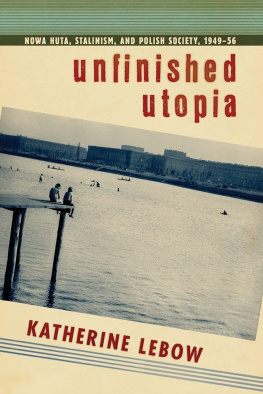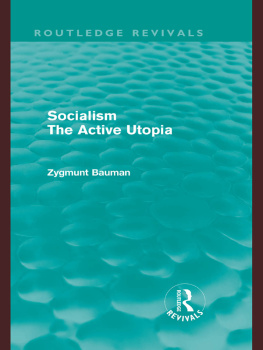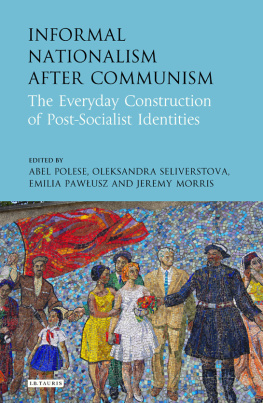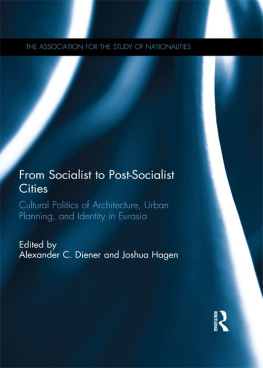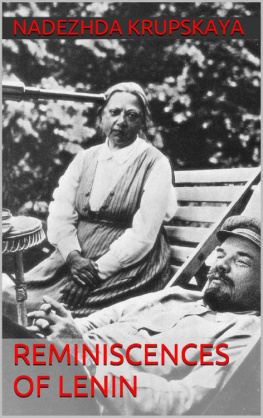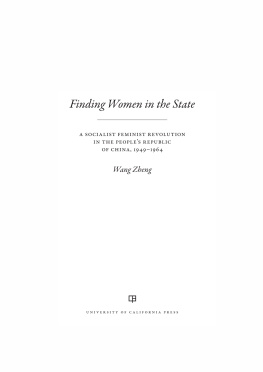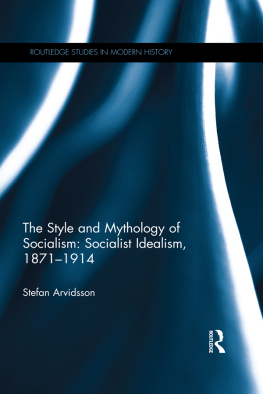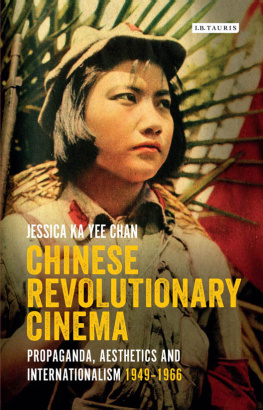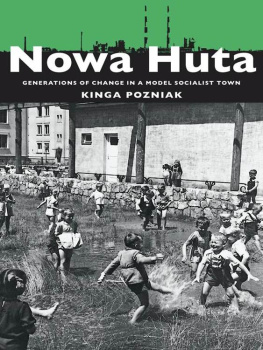Katherine Lebow - Unfinished Utopia: Nowa Huta, Stalinism, and Polish Society, 1949-56
Here you can read online Katherine Lebow - Unfinished Utopia: Nowa Huta, Stalinism, and Polish Society, 1949-56 full text of the book (entire story) in english for free. Download pdf and epub, get meaning, cover and reviews about this ebook. year: 2016, publisher: Cornell University Press, genre: Politics. Description of the work, (preface) as well as reviews are available. Best literature library LitArk.com created for fans of good reading and offers a wide selection of genres:
Romance novel
Science fiction
Adventure
Detective
Science
History
Home and family
Prose
Art
Politics
Computer
Non-fiction
Religion
Business
Children
Humor
Choose a favorite category and find really read worthwhile books. Enjoy immersion in the world of imagination, feel the emotions of the characters or learn something new for yourself, make an fascinating discovery.
- Book:Unfinished Utopia: Nowa Huta, Stalinism, and Polish Society, 1949-56
- Author:
- Publisher:Cornell University Press
- Genre:
- Year:2016
- Rating:4 / 5
- Favourites:Add to favourites
- Your mark:
Unfinished Utopia: Nowa Huta, Stalinism, and Polish Society, 1949-56: summary, description and annotation
We offer to read an annotation, description, summary or preface (depends on what the author of the book "Unfinished Utopia: Nowa Huta, Stalinism, and Polish Society, 1949-56" wrote himself). If you haven't found the necessary information about the book — write in the comments, we will try to find it.
Unfinished Utopia is a social and cultural history of Nowa Huta, dubbed Polands first socialist city by Communist propaganda of the 1950s.
Work began on the new town, located on the banks of the Vistula River just a few miles from the historic city of Krakw, in 1949. By contrast to its older neighbor, Nowa Huta was intended to model a new kind of socialist modernity and to be peopled with new men, themselves both the builders and the beneficiaries of this project of socialist construction.
Nowa Huta was the largest and politically most significant of the socialist cities built in East Central Europe after World War II; home to the massive Lenin Steelworks, it epitomized the Stalinist program of forced industrialization that opened the cities to rural migrants and sought fundamentally to transform the structures of Polish society.
Focusing on Nowa Hutas construction and steel workers, youth brigade volunteers, housewives, activists, and architects, Katherine Lebow explores their various encounters with the ideology and practice of Stalinist mobilization by seeking out their voices in memoirs, oral history interviews, and archival records, juxtaposing these against both the official and unofficial transcripts of Stalinism. Far from the gray and regimented landscape we imagine Stalinism to have been, the fledgling city was a colorful and anarchic place where the formerly disenfranchised (peasants, youth, women) hastened to assert their leading role in building socialismbut rarely in ways that authorities had anticipated.
Nowa Huta was a steelwork and an urban center designed for rural migrants who were to become new men and women in the socialist environment. This is a story of Polish communism as seen from the vantage point of ordinary people who participated in the Stalinist industrial drive. In a compelling and lucid way, Katherine Lebow describes a community that from the very beginning developed a sense of its own identity, not necessarily in agreement with the Communist regimes vision. Rather, the people of Nowa Huta combined rural traditions, the legacy of war and displacement, and their own interpretations of what it meant to construct socialism into a unique system of values. Ironically, as Lebow aptly argues, these values eventually contributed to the dismantling of the Communist project. -- Malgorzata Fidelis, University of Illinois at Chicago, author of Women, Communism, and Industrialization in Postwar Poland
Unfinished Utopia is an extremely interesting and beautifully executed book.... This book will appeal to a very wide audience. It will of course interest historians of the Polish postwar first and foremost, but beyond that it will appeal to Eastern Europeanists and, notably, to historians of the Western European postwar as well. The book succeeds on many levels: as Polish history, as a history of postwar European recovery, as a history of Stalinism and of Communist identity formation, and, lastly, as a history of twentieth-century political and social transformations. -- Eva Plach The Journal of Modern History
Each chapter provides the reader with fascinating material that ultimately illuminates the problems at the heart of the most recent discussions in Polish historiography. This includes the nature of Polish Stalinism, which Lebow sees as much more than mere ideology, but rather as a set of practices that individuals creatively appropriated. -- Anna Muller Austrian History Yearbook
In this richly researched book, Lebow explores how Polands socialistregime and the residents of Nowa Huta built the city and forged a new way oflife.... It is remarkable that Lebow is able to tell the story of Nowa Huta anddevelop these provocative arguments in such a short book. -- Steven E. Harris East Central Europe
Katherine Lebow has redirected the study of Stalinism in scholarly debates. Unlike practitioners of traditional sovietologynow morphing into victimologyfor popular consumptionshe seeks out the complexities and ambiguities of Stalinism in eastern Europe... This book will appeal to a wide readership across many disciplines. The range is extensive: urban geography, political mobilization, social structure, gender, youth culture, and film studies. It crosses boundaries within Poland and beyond. -- Anthony Kemp-Welch, University of East Anglia Slavic Review
With its monumental architecture and bold layout, Nowa Huta appears to be the quintessence of Communist urban planning. Yet, as Katherine Lebows rich yet concise study demonstrates, underneath the regimented spaces and ubiquitous concrete lie more complex and nuanced stories.... [Unfinished Utopia] also provides important general insights into the intricate processes by which modernist urban spaces, despite their aspiration to control, become powerful sites of negotiation and resistance. -- Uilleam Blacker Times Literary Supplement
Katherine Lebow is an Elise Richter Fellow at the Vienna Wiesenthal Institute for Holocaust Studies.
Katherine Lebow: author's other books
Who wrote Unfinished Utopia: Nowa Huta, Stalinism, and Polish Society, 1949-56? Find out the surname, the name of the author of the book and a list of all author's works by series.

